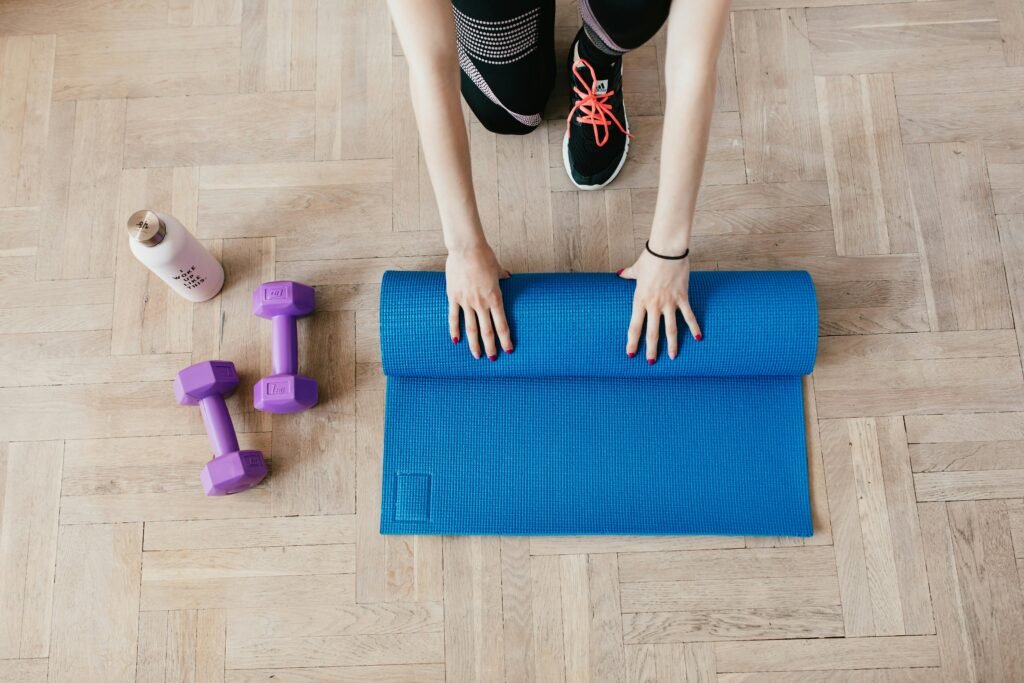
In the fast pace of our daily lives, it is very common to put our needs on the back burner. Between the demands of work, family, and other responsibilities, self-care often takes a back seat. Yet, self-neglect comes at a cost to our overall well-being. Self-care is not a luxury. It is a necessity. It’s about recognizing our importance and prioritizing our health and happiness. Fortunately, self-care doesn’t have to be extravagant or time-consuming. It can be as simple as taking a few moments each day to connect with ourselves and engage in activities that replenish our mind, body and spirit. From small gestures of self-compassion to more intentional actions, there are countless ways to incorporate self-care into our lives. In this guide, we’ll explore a variety of self-care activities, each of which offers a unique opportunity to nurture and develop yourself. Whether relaxing in a warm bath, immersing yourself in the present moment through mindfulness, or finding avenues for creative expression, each act of self-care serves as a gentle reminder that We are worthy of love and attention, and that our invested well-being is a non-negotiable aspect of living a fulfilling life. So, let’s embark on this journey together, exploring the rich tapestry of self-care practices that can help us cultivate a deep sense of self-love, resilience, and inner peace in the midst of life’s chaos.
Mindfulness and Meditation:
In the whirlwind of modern life, carving out moments of silence and mindfulness becomes inevitable. Dedicating a few minutes each day to sit quietly, focusing on the breath and grounding in the present moment, can be transformative. This simple practice can act as a powerful antidote to the stresses of everyday life, contributing significantly to overall well-being. Scientifically validated, mindfulness and meditation practices not only reduce stress but also increase concentration, reduce anxiety, and promote emotional resilience. The beauty lies in the variety of techniques available. Whether it’s a structured guided meditation, the introspection of a body scan meditation, or the compassion developed in a lovingkindness meditation, there is a method tailored to individual preferences. For additional support and guidance, mindfulness apps like Headspace or Calm offer an easy tool to start on this journey, helping both practice and track progress. Ultimately, in the simplicity of these moments, one finds a deeper path to self-care and inner balance.
Physical Exercise:
Regular physical exercise serves as a cornerstone for overall well-being, extending benefits beyond physical health to encompass mental and emotional well-being. By participating in activities such as jogging, yoga, dancing, or swimming, individuals can stimulate the release of endorphins, which act as natural mood enhancers. It not only improves one’s mood but also helps reduce symptoms associated with anxiety and depression. It is recommended to devote at least 30 minutes to moderate-intensity exercise most days of the week. For beginners, it is advisable to start with manageable levels of activity and gradually increase the intensity of exercise over time. Throughout this journey it is important to listen to one’s body, knowing when to push the limits and when to allow rest and recovery. In this balanced approach to physical activity, individuals can experience a deeper sense of vitality and resilience, promoting harmony between mind, body and spirit.

Nourish your body:
Paying attention to your diet and hydration is an important part of self-care. Give your body the nutrition it craves by adding healthy foods like fruits, vegetables, whole grains, lean protein and healthy fats to your diet. Ensure adequate hydration by drinking plenty of water throughout the day while being mindful to moderate your intake of caffeine, sugary drinks and alcohol. Engage in mindful eating practices to deepen your relationship with food; Savor each bite, chew slowly, and tune into your body’s hunger and fullness signals. It is important to adapt yourself to your body’s needs and reactions, know when rest is necessary and respect those moments accordingly. By fostering this mindful relationship with your diet and hydration, you empower yourself to thrive and flourish from within, promoting your overall well-being.
Get adequate rest:
Prioritizing adequate sleep is a fundamental aspect of any self-care routine. The goal of getting between 7 and 9 hours of uninterrupted sleep each night is to give your body and mind a chance to recharge and rejuvenate. Establishing a calm bedtime ritual signals your body that it’s time to rest, helping to transition into a restful state. Avoid screens and stimulating activities in the hours leading up to bedtime, promoting a sleep-friendly environment. Create a comfortable sleep space free of distractions to promote maximum rest. For those dealing with sleep challenges, exploring relaxation techniques such as deep breathing, gentle stretching, or immersing yourself in soothing music or white noise can be beneficial. By committing to nurturing your sleep hygiene, you pave the way for better health and vitality, ensuring you wake up refreshed and ready to take on each day.
Build healthy relationships:
Surrounding yourself with a positive and supportive social circle is a cornerstone of self-care. Build relationships with friends, family, and colleagues who contribute to your well-being and create an environment where you feel valued and respected. In these interactions, prioritize open and honest communication, listening empathetically to others while expressing their needs and limitations. Dedicate time to nurturing these relationships, whether it’s through regular phone calls, quality time spent together, or acts of kindness and appreciation. By cultivating healthy relationships, you not only strengthen your emotional well-being but also build a support network that increases your resilience and overall life satisfaction. The reciprocity of positivity within these relationships becomes a powerful source of strength, enriching your life with shared experiences, understanding, and a sense of belonging.

Engage in creative expression:
Embracing your creative side serves as a meaningful form of self-care. Engage in activities such as painting, writing, playing music, or crafts, providing outlets for self-expression and emotional release. Creativity serves as a powerful outlet for stress relief and self-discovery, allowing you to explore your inner thoughts and feelings in a tangible way. Let go of the pressure of perfection and judgment, and instead, focus on the process and joy of creating something meaningful to you. Explore different creative mediums and techniques, giving yourself the freedom to experiment and discover what resonates most deeply. Through this journey of creative discovery, you open up a world of possibilities, boost your well-being and connect deeply with yourself in the process.
Practice Gratitude:
Cultivating an attitude of gratitude is an important component of self-care. Take time each day to reflect on the blessings in your life, whether it’s the beauty of nature, the support of loved ones, or the small joys that bring you joy. Keeping a gratitude journal offers a solid outlet for this practice, allowing you to write down three things you’re grateful for each day. This simple act can shift your perspective from dwelling on the negative to embracing the abundance around you. Thank others through thank you notes, compliments, or acts of kindness, fostering deeper connections and spreading positivity. By cultivating gratitude, you promote positive emotions and strengthen your social bonds, ultimately increasing your overall sense of well-being.
Set boundaries:
Setting boundaries is an essential aspect of self-care, important for protecting your physical, emotional and mental well-being. It involves learning to confidently say no to activities, commitments, or interactions that drain your energy or compromise your health. By prioritizing self-care and setting aside time for yourself, you affirm your worth and respect your needs and boundaries.Communicate your boundaries assertively and respectfully without feeling guilty or pressured to prioritize others over yourself. Surround yourself with people who respect and support your boundaries, fostering an environment conducive to your well-being. Recognize that setting boundaries is an act of self-love and protection, allowing you to live a life that respects your needs and promotes your overall growth.
